WordPress: A Love–Hate Story
The messy truth about food blogging’s biggest platform monopoly.
In my work with startups and tech platforms, I’m used to seeing companies build their own CMS. Custom tools, tailored workflows, bespoke everything. So when I first started looking at the food blogging world, I was surprised to learn that WordPress was the platform almost everyone used.
Full transparency: WordPress drives me nuts. I don’t use it. And honestly, I couldn’t figure out why anyone would. With so many publishing options out there, Squarespace, Substack, Ghost, and more, why did food bloggers all seem to stay loyal to WordPress?
Or maybe the better question is: are there really that many options?
I chose to take a closer look.
Lena, Marco, and Nova
Lena sat at her desk staring at the blinking notification on her WordPress dashboard. Another plugin update. She clicked, held her breath, and prayed the site wouldn’t break. It did—again. A recipe card vanished, the site speed tanked, and Lena groaned.
She didn’t start blogging to become a part-time IT manager. She just wanted to share her grandmother’s soup recipe.
If you’ve been in the food blogging world long enough, you know a Lena. Maybe you are Lena. WordPress is the house most creators live in—reliable, customizable, and full of potential. But like any house, it requires constant upkeep.
And lately, some creators are wondering: what if I moved into a smaller, easier-to-manage place down the street?
Why everyone ended up on WordPress
WordPress didn’t just stumble into dominance, it built an ecosystem that food bloggers couldn’t live without.
Recipe plugins + schema: Tools like WP Tasty, WP Recipe Maker, and Feast gave food bloggers superpowers. Google, Pinterest, and apps could actually read and display recipes.
Monetization: Ad networks like Mediavine and Raptive were built for WordPress. If you wanted ad revenue, you were here.
Community momentum: When everyone else is using WordPress, tutorials, support groups, and workflows naturally spring up around it.
Control: With hosting, design, and plugins in your hands, you own your content and can build any business model you want.
Lena loves these parts. Her site has paid the bills, and she’s proud of what she’s built. But each time another plugin update derails her weekend, she wonders if it’s worth it.
Enter the alternatives
Not everyone wants to be Lena.
Marco, the community builder
Marco never cared much about Google rankings. He wanted a direct line to his readers. Substack felt like a breath of fresh air. No plugins. No hosting headaches. He hit publish, and his newsletter landed in inboxes minutes later.
He didn’t need SEO to pay his bills; his readers subscribed for $8 a month. Substack gave him simplicity and sustainability.
But when Marco tried to share recipes, he hit a wall. No recipe schema. No search visibility. Substack wasn’t designed for food discoverability; it was designed for community.
Nova, the tinkerer
Nova wasn’t scared of tech. She loved playing with design, experimenting with memberships, and keeping things lightweight. For her, Ghost was the perfect fit, sleek, open source, and subscription-ready without WordPress bloat.
Still, she felt like she was swimming upstream. The food blogging tools she needed weren’t there. Ghost was powerful, but not food-specific.
Why WordPress still holds the crown
Other platforms are growing fast, but none have solved the food creator problem.
Squarespace and Wix: Easy to set up, but lack real recipe functionality.
Medium: Built an audience, but never specialized for recipes.
Substack and Ghost: Strong for community and subscriptions, but still don’t speak the structured language of food blogging (schema, recipe cards, integrations with ad networks).
WordPress, for all its flaws, remains the only place where everything works together—recipes, SEO, ads, affiliates, and a well-worn path to monetization. Sigh.
So what does it all mean?
Lena sticks with WordPress, because it’s the only place she can keep her traffic and ad revenue flowing.
Marco thrives on Substack, where his subscribers—not search engines—fund his work.
Nova builds on Ghost, carving her own hybrid path.
None of them are wrong. Each platform reflects a different kind of creator:
WordPress for the SEO-driven, ad-monetized blogger.
Substack for the subscription-first community builder.
Ghost for the creator who wants flexibility without bloat.
So maybe the real question isn’t why WordPress still dominates but rather: what kind of creator do you want to be?
Because the platform you choose isn’t just tech—it’s a business model, a workflow, and a lifestyle.
Blueberri Stack
Here’s what’s new in food-tech / blogging / creator-news from the last week and why it matters to you.
Google’s Update Hits Reset
Google’s September Core Update is rolling out, and this time, it looks like quality content is winning. Food bloggers are reporting stability (finally!) instead of wild swings.
Why it matters: If you’ve been stressed about SEO hacks, this is a signal: expertise, depth, and trustworthiness might actually start paying off.
Creators Look Beyond the Blog
In the same Food Blogger Pro roundtable, creators shared how they’re syndicating content—LinkedIn, newsletters, even Threads—so they’re not dependent on Google alone.
Why it matters: Traffic diversification is no longer optional. It’s insurance against algorithm chaos and a way to reach new readers where they already are.
Tech Is Quietly Reshaping Food Systems
A new report shows AI and smart farming tools are lowering costs and cutting food waste across the supply chain.
Why it matters: What happens upstream impacts you downstream. Ingredient prices, consumer expectations (hello, sustainability), and even recipe relevance shift when the food system itself changes.
Goodbye, Typepad
First of all, does anyone even remember TypePad? One of the oldest blogging platforms, Typepad, is shutting down on September 30. Users who don’t migrate will lose everything.
Why it matters: It’s a stark reminder that platforms come and go. Owning your content and choosing a future-proof platform is more than a tech decision—it’s survival.
Behind the Book
So this is a check-in on my COSE book journey.
Working with AJ Harper has been mind-opening. She’s AH-mazing. If you don’t know her, she’s the author of Write a Must Read and she does not let you skate by. She makes you outline. And I mean a serious outline.
It took me 4 hours straight to build the outline. Not because I didn’t know what I wanted to say — more because I didn’t know how all the pieces needed to sit together. Once the structure was in place, suddenly I saw where the gaps were. I could see what needed research / interviews / rewriting.
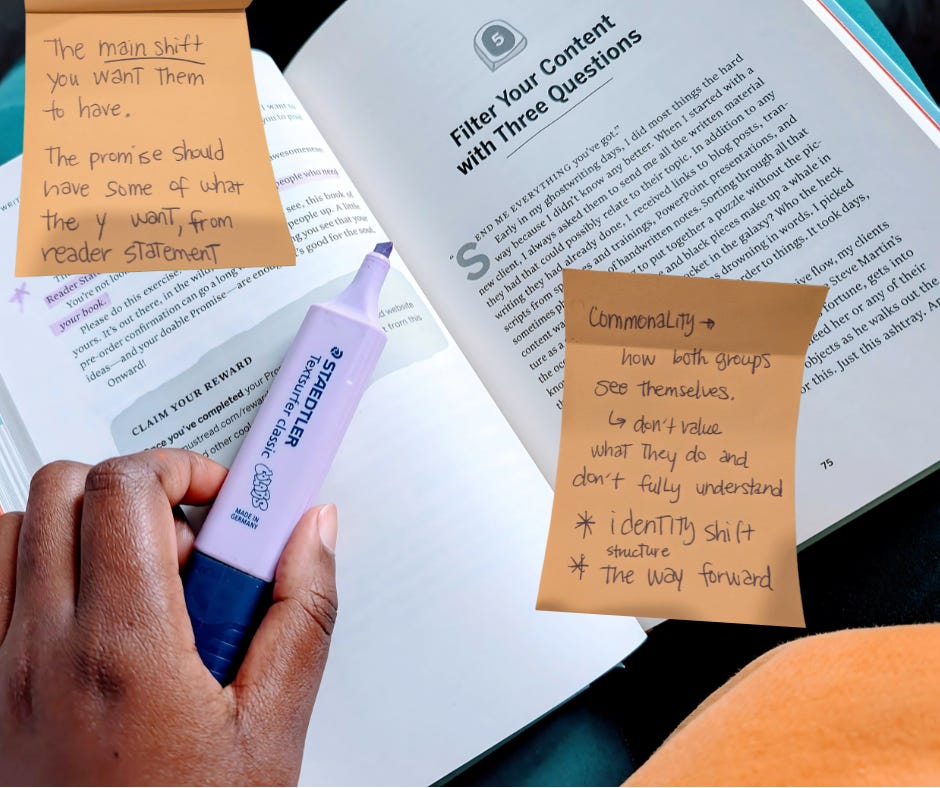
It’s a roller coaster: full meltdown moments (“I can’t write anything that makes sense”) to “Oh, this is working, I can do this.” And… on I go.
I want this book to be right for you. It’s not about speed, it’s about meaning, shape, impact.
Speaking of interviews… If you’re a creator (or aspiring book author, or content person trying to build something big), I want to hear from you. I’m doing a creator survey to understand what you struggle with, what helps you feel like you’re writing something that matters, and where the friction is. If you're willing,
(please be willing… please be willing… please be willing)
click the button below, share your thoughts, and help me build something that serves creators, not just readers.
At the end of the day, choosing a platform isn’t just about tech—it’s about the kind of creator you want to be. Whether you’re a WordPress veteran, a Substack explorer, or carving your own path on Ghost, your content deserves a home that works for you.
I’d love to know where you land. Are you more of a Lena, a Marco, or a Nova? Drop a like 💙 if this resonated with you, and if you’re a WordPress veteran eyeing Substack or Ghost, tell me: what’s pulling you in that direction? Leave a comment. I read every one.
Your friend in food,
Sandie



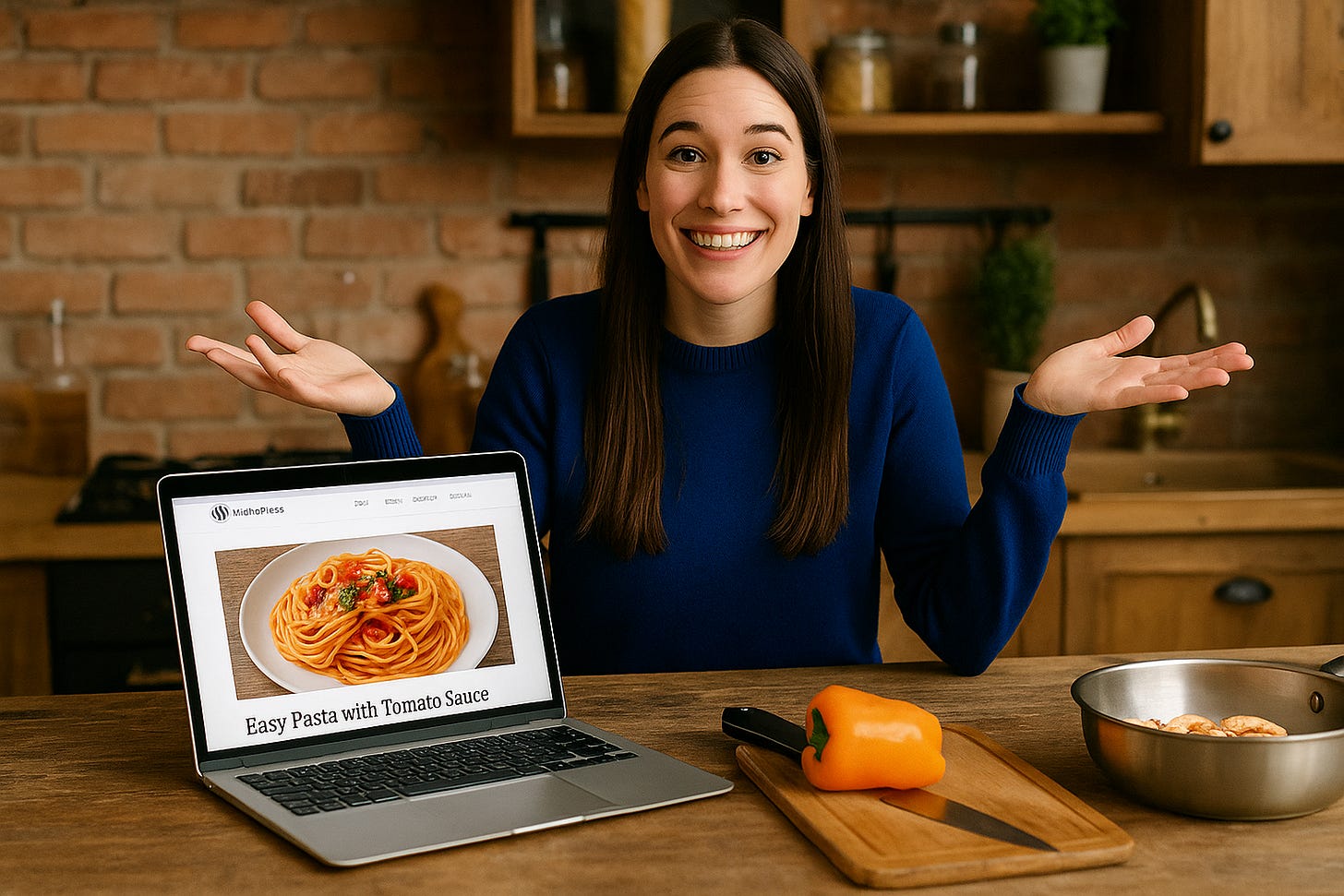

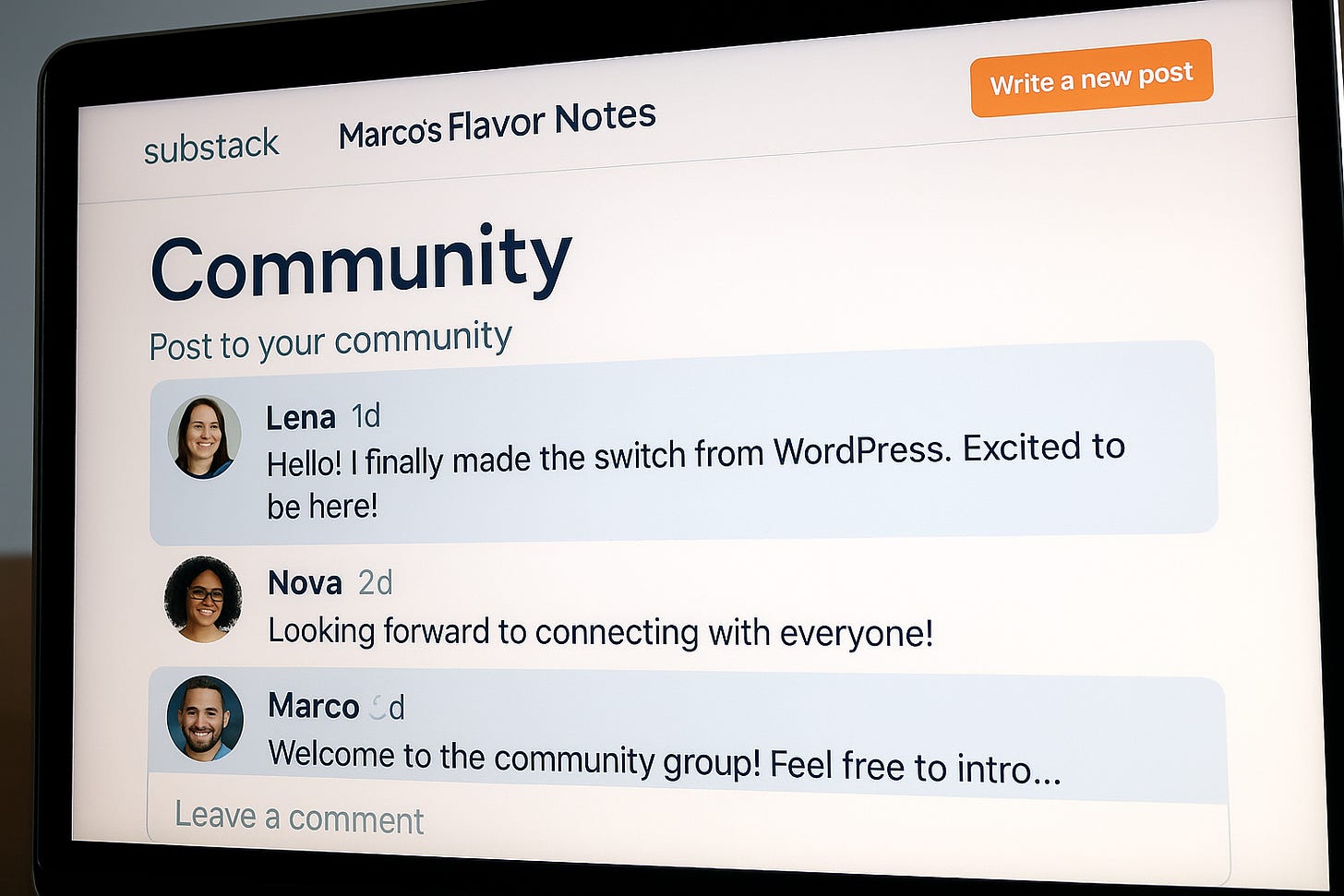
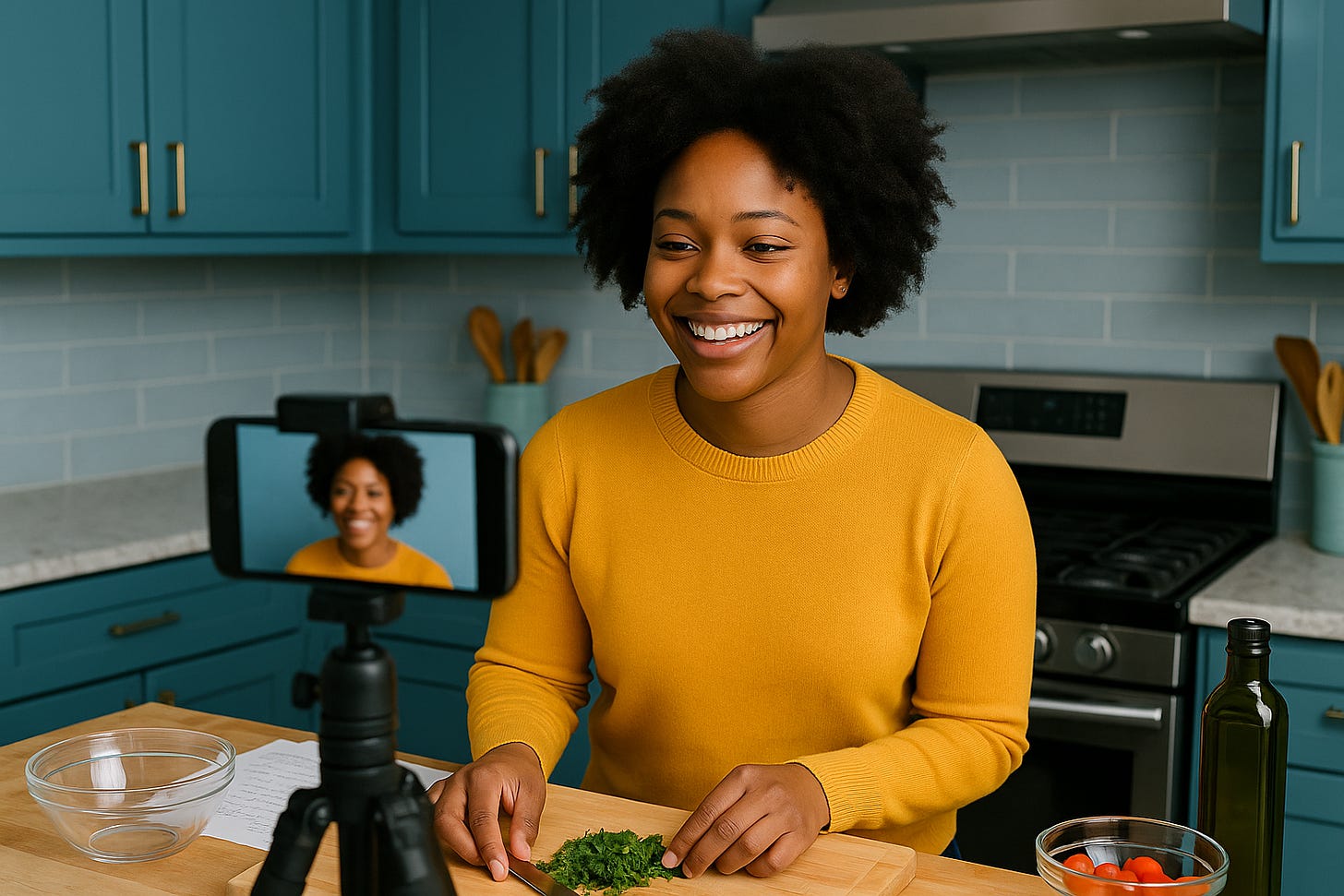
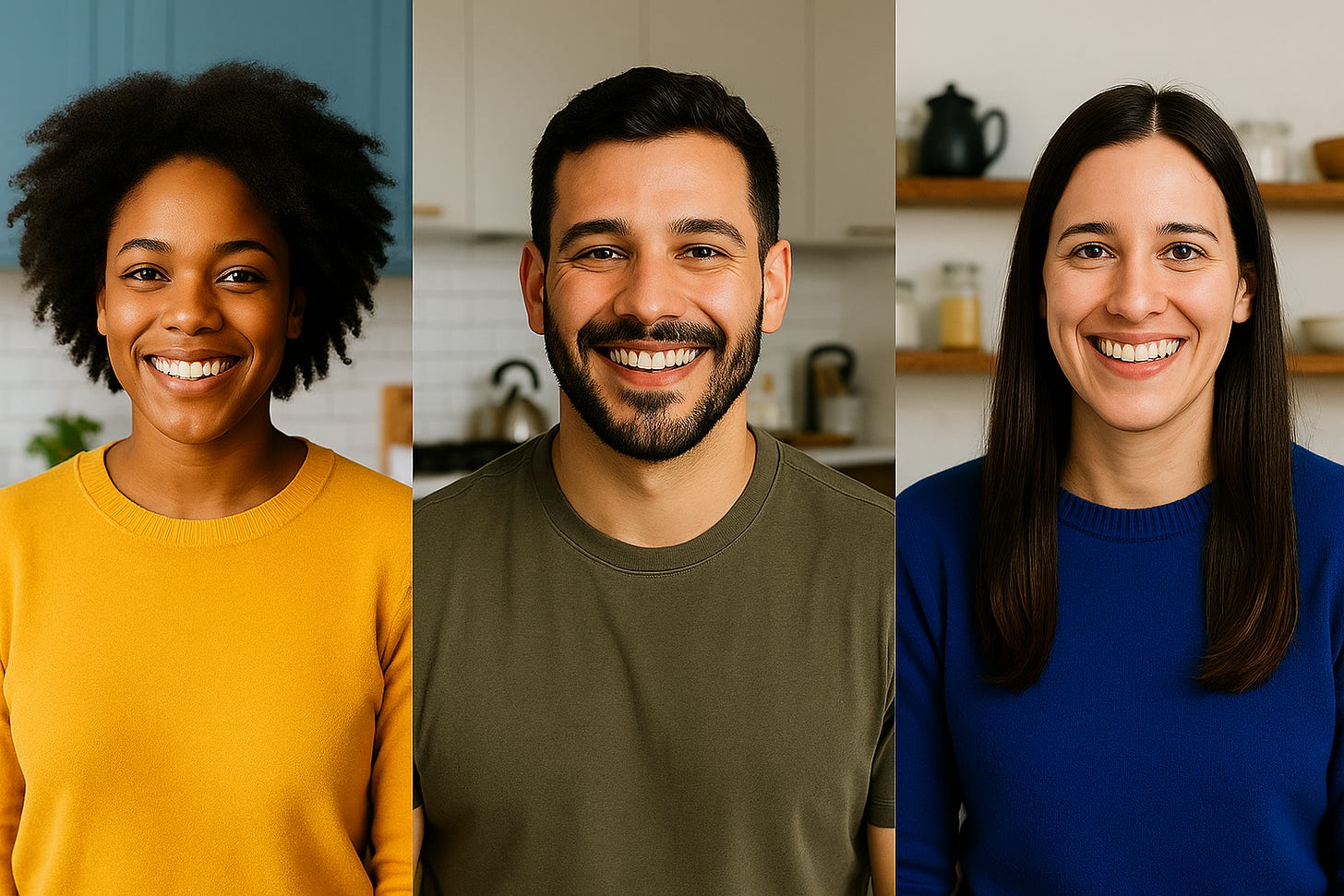
The way you explain the pros and cons of WordPress versus other platforms really hits home. I especially liked how you showed that different creators have different needs. Thanks for sharing such valuable insights! 💜
I'm not a food blogger, nor did I ever consider myself a blogger/content creator but I switched from squarespace to Wordpress a couple years ago when I leaned into more blogs on my site. SS just didn't even come close to the SEO functionality of wordpress. Do you know anyone who has monetized their site on squarespace?